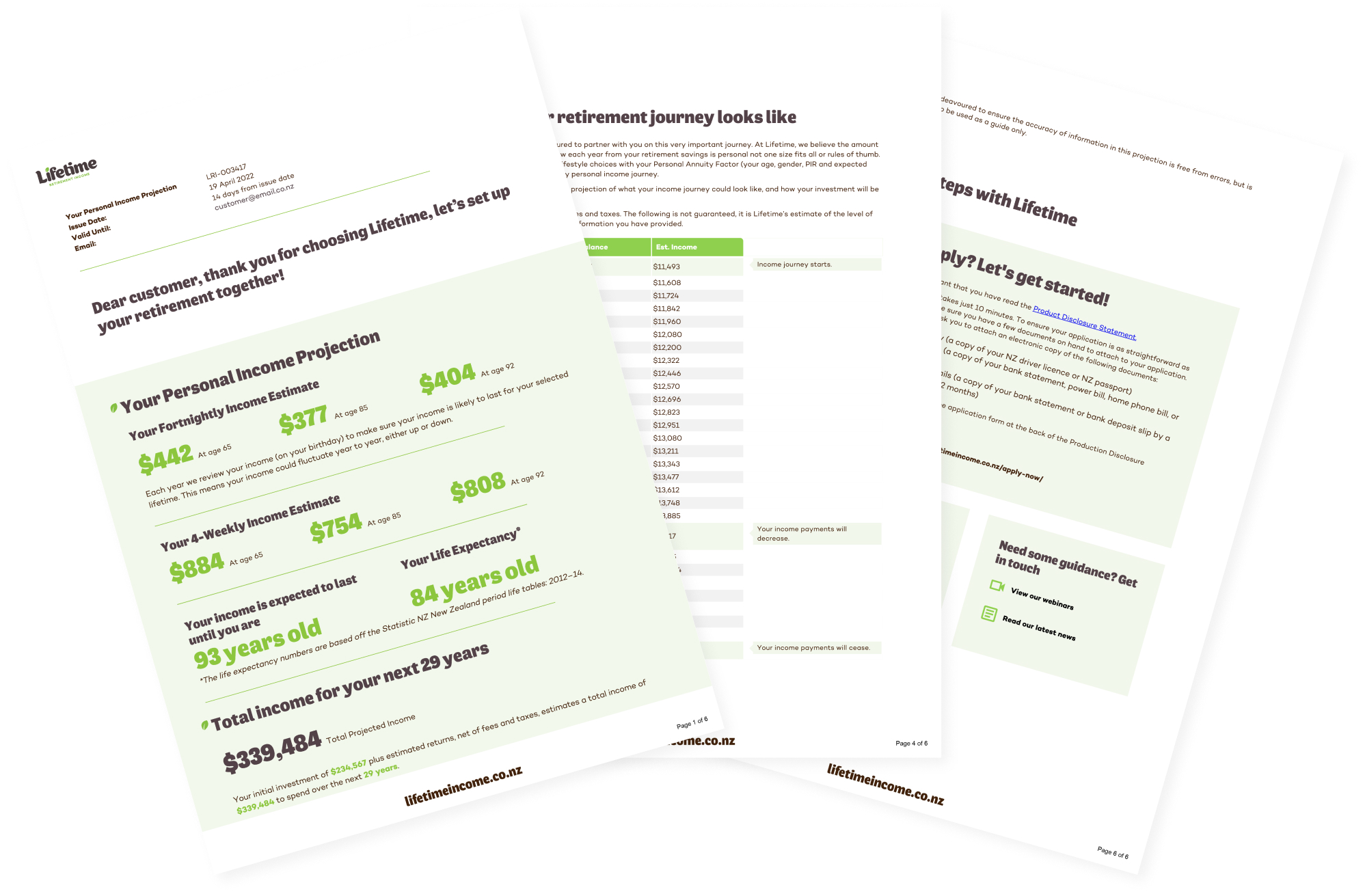Retirement Life
20 November 2024
Five tips for future-proofing your retirement finances
A major challenge of ageing is the natural decline in cognitive functions that will impact almost all of us in one way or another.
Whether it’s simply being a little more forgetful and slower to get the cogs firing, or being confronted with a dementia diagnosis, the reality is that complex administrative tasks like managing finances can start to feel more stressful and overwhelming as we age.
Experts say pension products should be mindful
This isn’t just anecdotal. A recent study of the global pension industry by Mercer and the CFA Institute offered six recommendations for improving retirement outcomes, one of which was that pension providers must recognise that cognitive ability declines with age and bake this into their retirement income products.
Specifically, such products “should not require retirees to make ongoing decisions throughout life and the benefits provided should be relatively stable and sustainable”.
Make it easy for yourself
There are a number of steps you can take to simplify your financial set up in retirement. Below, we outline our top tips for ensuring your money remains manageable throughout your third act:
1. Consolidate your bank accounts and investments
Conduct an audit of all your bank and investment accounts. Can you simplify these, by merging multiple accounts so you have fewer to keep on top of? You could also consider consolidating your investments with one provider for continuity of communication and support. Most investment managers offer various products and approaches that you can tailor to your personal goals and circumstances. Lifetime Invest offers four classic fund styles of cash, conservative, balanced and growth, for example.
Calculate what you could draw in retirement.

2. Chat to a financial advisor
If you need help getting on top of your finances and understanding your options for generating a long-term income to see you through your golden years, consider engaging a financial advisor. If this interests you, we’d be happy to connect you to an independent, qualified advisor for a free, no obligation consultation. Click here to request a referral.
3. Research specialised retirement products
Some financial products are designed specifically for the unique challenge of managing money in retirement. For instance, decumulation or drawdown funds (e.g. Lifetime Income) control for variables like longevity risk and investment returns to pay out a stable income that will last as long as you do.
Home equity release solutions like reverse mortgages or the debt-free alternative Lifetime Home allow you to live off some of the wealth tied up in your property without selling it outright. Meanwhile, some insurances are primarily designed for the senior demographic. Make sure you’re aware of the financial products and resources out there that could help de-stress your life.
4. Organise important documents
Store wills, insurance policies and financial records in a secure, easily accessible location. Scan and save important documents digitally for added security and convenience and consider sharing them with a trusted person, ideally your Enduring Power of Attorney.

5. Talk about it
Keep open lines of communication with trusted family members about your financial situation and plans. And if you have any issues or questions about anything relating to your finances, reach out to financial professionals promptly – this could be a financial advisor, bank or your investment manager.

Project your retirement income.
Invest with Lifetime for a retirement income managed for living.
